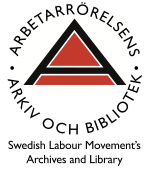- Ingår i serien global arbetarhistoria
Seminarium inom ramen för serien global arbetarhistoria, med Ritwika Biswas, University of Calcutta
One of the major ideological forces that shaped the political life of Bengal in the 20th century was radicalism. This paper is a study of the germination and evolution of a particular political party, the Communist Party. The communists were primarily responsible for injecting a radical spirit into the political ideas and activities of the Indian people. After independence the communist experiment with radicalism also achieved a good degree of political success in terms of empowerment in states like Kerala, Tripura and West Bengal. In the case of West Bengal the success was especially impressive. While in two other states the empowerment of the communists was a temporary phenomenon and was interrupted by the revitalization of the non-radical political forces, in West Bengal a leftist regime under communist leadership enjoyed an unbroken spell of power from 1977 to 2011.
Interestingly, this political achievement of the Communist Party was secured not by a radical take-over of power but through the electoral process and within a constitutional framework. Naturally this history raises a few questions: a) how and why did the Communist Party, the chief exponent of radicalism in India, accommodate itself to constitutional power politics? b) how did it sustain its radical identity while doing so?
This lecture describes some of the distinctive features of the region of West Bengal that made it especially hospitable to radicalism, it discusses how and why the Communist Party was able to make itself a viable political alternative to the Congress Party in West Bengal, and it evaluates the party’s efforts to sustain its revolutionary identity at the same time that it made a bid for power through the electoral process. As will be seen, the peculiar experiment of sustaining a radical image through constitutional performance has given politics in the state a direction and dynamism of its own.
Ritwika Biswas is Associate Professor at the Department of history at the University of Calcutta, Kolkata India. She works currently on a theme related to the idea of governance as reflected in the Bengali writings during the period of 1858-1950.
Plats: Arbetarrörelsens arkiv och bibliotek, Elektronvägen 2, 141 49 Huddinge
Seminariet hålls på engelska.
Ingen föranmälan krävs.
För mera information skicka mail till Silke.Neunsinger [at] arbark.se

